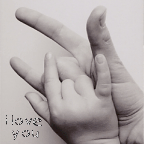
A
trigger is something that sets off a memory transporting a person back to the event of the original trauma. A
flashback can take the form of pictures, sounds, smells, body sensations, feelings, or numbness.
And, for those who may be teetering on the edge of these traumatic responses, The University at Alberta has some suggestions:
1. Tell yourself that you are having a
trigger response or
a flashback.2.
Remind yourself that the worst is over. The feelings and sensations you are experiencing are memories of the past. The actual event has already occurred and you survived. Now it is the time to let out the terror, rage, hurt, and/or panic. Now is the time to honor your experience.
3.
Get grounded. This means stamping your feet on the ground to remind yourself that you have feet and can get away now if you need to. (There may have been times before when you could not get away, now you can.) Being aware of all five senses can also help you ground yourself.
4.
Breathe. When we get scared we stop normal breathing. As a result our body begins to panic from the lack of oxygen. Lack of oxygen in itself causes a great deal of panic feelings; pounding in the head, tightness, sweating, feeling faint, shakiness, and dizziness. When we breathe deeply enough, a lot of the panic feeling can decrease. Breathing deeply means putting your hand on your diaphragm, pushing against your hand, and then exhaling so the diaphragm goes in.
5.
Reorient to the present. Begin to use your five senses in the present. Look around and see the colors in the room, the shapes of things, the people near, etc. Listen to the sounds in the room: your breathing, traffic, birds, people, cars, etc. Feel your body and what is touching it: your clothes, your own arms and hands, the chair, or the floor supporting you.
6.
Get in touch with your need for boundaries. Sometimes when we are having a flashback we lose the sense of where we leave off and the world begins; as if we do not have skin. Wrap yourself in a blanket, hold a pillow or stuffed animal, go to bed, sit in a closet, any way that you can feel yourself truly protected from the outside.
7.
Get support. Depending on your situation you may need to be alone or may want someone near you. In either case it is important that your close ones know about flashbacks so they can help with the process, whether that means letting you be by yourself or being there.
8.
Take the time to recover. Sometimes flashbacks are very powerful. Give yourself time to make the transition form this powerful experience. Don't expect yourself to jump into adult activities right away. Take a nap, a warm bath, or some quiet time. Be kind and gentle with yourself. Do not beat yourself up for having a flashback.
9.
Honor your experience. Appreciate yourself for having survived that horrible time. Respect your body's need to experience a full range of feelings.
10.
Be patient. It takes time to heal the past. It takes time to learn appropriate ways of taking care of yourself, of being an adult who has feelings, and developing effective ways of coping in the here and now.
ReferencesUniversity of Alberta:Triggers and Flashbacks
reade more...
Résuméabuiyad



